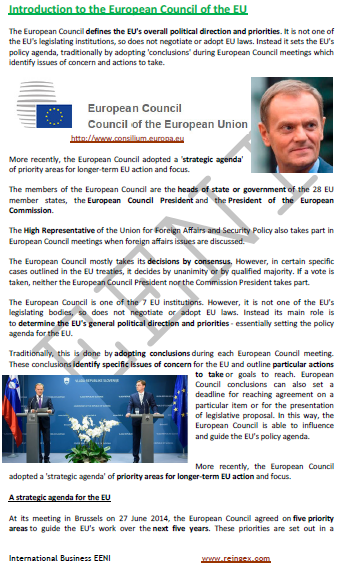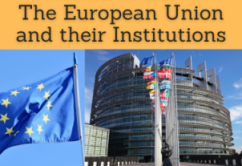European Council (EU). Eurogroup
European Council: the political institution of EU
- Introduction to the European Council: The political arm of the European Union
- Political priorities of the European Union
- Strategic Agenda for the Union in times of change of the European Council
- Conclusions of the European Council
- Euro Summit
- Council of the European Union
- The EUROGROUP
Sample - European Council:


The educational aims of the Subject “European Council” are the following:
- To understand the role of the European Council as the political arm of the European Union
- To learn about EU's political priorities
- To learn the Strategic Agenda for the Union in times of change of the European Council

The Subject “European Council” is included within the curriculum of the following academic programs at EENI Global Business School:

Masters: International Business, Foreign Trade.

Languages:  or
or  Consejo Europeo
Consejo Europeo  Conseil européen
Conseil européen  Conselho Europeu.
Conselho Europeu.

The European Council is the political institution of EU, that is, it defines the overall political strategy of EU (Europe). The European Council has no legislative capacity.
The heads of state of EU countries are members of the European Council, in addition to its President and the President of the European European Commission.
In the cases where the issues related to the EU Foreign Policy are being discussed, the EU's Foreign and Security Policy (European External Action Service) is also involved.
In virtually all discussions of the European Council, decisions are taken by consensus.
The priorities of the Strategic Agenda for the Union in times of change:
- Employment, growth and competitiveness. Includes the Digital Single Market initiative
- Citizenship
- Energy and climate change policies
- Justice, security and freedom
- EU's global leadership
(c) EENI Global Business School (1995-2025)
Top of this page









 WhatsApp
WhatsApp